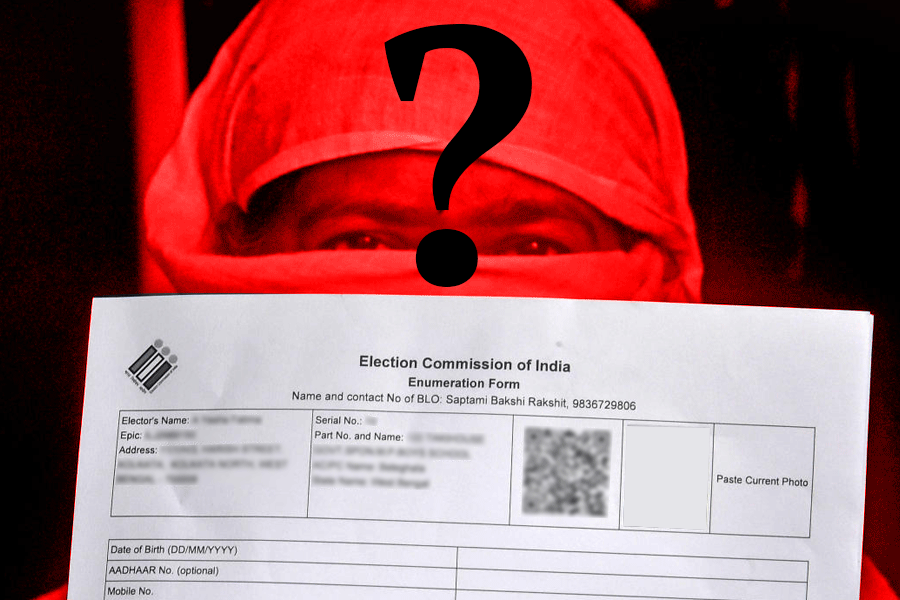New Delhi, Jan. 2: Two-thirds of cancers across different tissues may be blamed on just 'bad luck' or chance mutations in genes during cell division and not on lifestyle or environmental factors, a study released today has suggested.
The study by scientists at the Johns Hopkins University School of Medicine (JHUSM) in the US has shown that these random mutations that no one can do anything about are major driving factors for cancers in 22 among 31 types of human body tissues.
The study, published today in the US journal Science, is the first to combine biological data with mathematical techniques to calculate the actual contribution of random genetic mistakes to the incidence of different types of cancers.
But the scientists themselves and doctors not associated with the study have cautioned that the findings do not imply that people could ignore or undermine the role of lifestyle or environmental factors long associated with several cancers.
'If anything, this actually increases the importance of avoiding lifestyle and environmental factors implicated in some cancers,' Christian Tomasetti, a biomathematician and an assistant professor of oncology at the JHUSM, told The Telegraph over the phone.
'We should focus more resources on finding ways to detect such cancers at early curable stages.'
The scientists used previously published data to analyse stem cell divisions in 31 different human tissues and observed a strong positive correlation between the number of normal stem cell divisions in a tissue over a lifetime and the incidence of cancer.
Their findings suggest that head and neck cancers, a brain tumour called glioblastoma, and cancers of the esophagus, gall bladder, duodenum, pancreas, and ovaries are among the 22 that could be largely explained by 'bad luck' - random mutations.
Cancers in the nine other tissues appear to be driven more by lifestyle or environmental factors than by random mutations.
A senior oncologist in India warned that the public should not misinterpret the study.
'This changes nothing in the public health messages against known lifestyle-related risk factors for cancer,' Anil D'Cruz, director of the Tata Memorial Hospital, Mumbai, told this newspaper. 'Over half of all cancers documented in India are tobacco-related.'
Dozens of sophisticated studies over the past several decades have established strong correlation between cancers and lifestyle factors such as tobacco, obesity, and infections such as human papilloma virus linked to cervical cancer and hepatitis B and C viruses that have been shown to lead to liver cancer.
'The incidence of cancer will drop significantly if people avoid tobacco, obesity and these infections,' D'Cruz said.
'We now have a measure of the proportion of tissues where random mutations may play a big role - for these cancers, the major focus should be on the early detection of these cancers to increase the chances of a cure,' Tomasetti said.
In some tissues - such as the lungs, liver or head-and-neck - random mutations as well as lifestyle, environmental or hereditary factors may drive cancers, depending on individuals.
Lung cancer among smokers, for instance, would be attributed to this lifestyle factor, and liver cancer in patients infected with hepatitis B or C viruses, would be linked to these infections.
But random mutations would be the primary drivers of lung cancer in non-smokers and liver cancer in patients without a history of hepatitis B or C virus infections.
The study shows that people can add to their risk of getting cancers by smoking or other poor lifestyle factors.
'But many forms of cancer are due largely to the bad luck of acquiring a mutation in a cancer driving gene regardless of lifestyle and heredity factors,' Bert Vogelstein, professor of oncology at the JHUSM and second team member of the study, said in a media release. 'The best way to eradicate these cancers will be through early detection, when they are still curable by surgery.'
'Cancer-free longevity in people exposed to cancer-causing agents, such as tobacco, is often attributed to their 'good genes', but the truth is that most of them simply had good luck,' Vogelstein added.
But Vogelstein cautioned that poor lifestyles could add to the bad luck factor in the development of cancer.
The scientists did not include certain cancers such as breast cancer and prostate cancer in the study because they did not find enough data on the stem cell division rates in these tissues.
'I think this study shows through neat mathematics what has been obvious,' said Akhilesh Pandey, a senior scientist at the Johns Hopkins University, who was not associated with the study.
'Doctors and patients have known a long time that some people exposed to the exact same risks get cancer while others don't - and it's been attributed to bad luck. This study shows the importance of the random genetic changes.'

.jpg)
.jpg)








